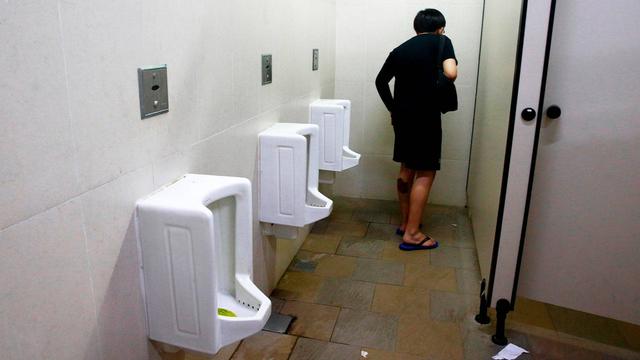Dirty school toilets fail our kids
London – This World Toilet Day, Domestos has released ‘The School Toilet Report’, a four-country study examining the experiences children encounter in relation to their school toilets. The report reveals that nine in ten (90%) children face issues with their school facilities, causing anxiety and even absence from school. This is despite parents stating that ‘access to clean and private toilets’ is as important as ‘teaching quality’ in schools.
The School Toilet Report - which spoke with both parents and children (aged 6-13) in India, Poland, South Africa and the UK – finds:
These experiences are negatively impacting children’s wellbeing. According to the study:
The report also highlights a disconnect between parental expectations and the realities faced by their children. With the global pandemic forcing heightened hygiene awareness, almost all parents (94%) state that clean and private toilets are as important as teaching quality (95%) and overall school hygiene (95%). Parents are however seemingly unaware of the issues as four in five (80%) rate their child’s school toilets as “good”.

Madhusudhan Rao, Domestos EVP of Home and Hygiene, said: “As an individual who has been engaged in sanitation issues for many years, this report makes for challenging reading, given the progress the international community hoped to make on global sanitation. For over a decade, Domestos has been working on improving school sanitation, working alongside partners including UNICEF, development agency GIZ and governments to run toilet operations and maintenance programmes. Through these programmes, we knew that children were suffering, but this report brings the very latest insights into the sheer prevalence and scale of the issues faced. It has never been clearer that there is an urgent need for immediate action to tackle this international school sanitation crisis.
"We will continue to work via a multi stakeholder approach with a variety of partners to seek multi-lateral solutions, whilst drawing on the findings of The School Toilet Report to better inform our work, such as the Cleaner Toilets Brighter Futures programme. We aim to help 100 million people access improved sanitation and hygiene by 2030, and this report shows that our children must be made a priority on this journey.”
Professor Kwame Akyeampong, Professor of International Education and Development at the Open University, who contributed to the report, stresses the urgent need to connect the conversations of education and sanitation in order to tackle the huge global development challenges of substandard school toilets and school attainment.
Professor Akyeampong said: “The findings of this study must act as a wakeup call for us all – governments, donor agencies, NGOs, teachers and parents - to redouble the efforts to ensure every school is able to provide clean and usable toilets. No child should feel anxious about attending school because they are nervous to use the school bathrooms. No child should feel discomfort from ‘holding it in’. If every child deserves a quality teacher to maximise their learning, then equally every child, from every country, deserves access to clean school toilets to ensure schools are safe places for children and conducive to learning. It is the only way to make equitable access to quality education truly meaningful for every child.”
The report suggests ways for children and parents to start to address the issue, given so few children (15%) vocalise the poor state of their school toilets. Parents now have the opportunity discuss this hidden problem with their children using the Domestos conversation guide 'Let’s Talk School Toilets’ to better understand how they feel about the school toilets, and its impact on their school experience. Parents can access the guide on 19th November.
To find out more about Domestos’ mission to improving sanitation facilities across the world, visit www.domestos.com








